Connecting the generations through music

When it comes to community orchestras, Lorraine Marks-Field is something of an impresario.
For years, she was a music teacher and music therapist in the Cranford public school system in New Jersey, but in 1994 when she heard that a community orchestra had folded, she saw an opportunity.
She wanted to start her own orchestra—but not just any orchestra. This would be a group that connected people of all ages, with no auditions and everyone welcome. The music mattered, of course, but ultimately it was about the people, and connecting the generations.
And so the New Jersey Intergenerational Orchestra of America was born.
She secured rehearsal space at her local school and put an ad in a local paper seeking players. She hoped to get 30 people for the first rehearsal; 72 showed up.
“We had to scramble for stands and music,” she said.
The first concert took place that December. Thirty years later, the orchestra is still going strong, with members who range from 10 years old to their late 80s. And now, after retiring and moving to Florida, she has a second group, the Florida Intergenerational Orchestra of America, which she started in 2005.
The players in her orchestras bring a range of abilities, so she has a beginner orchestra, a full orchestra, and a chamber orchestra.
“We never turn anybody away,” she said. “We have people of special abilities.”
If anything, musicians in her Florida orchestra, some of them snowbirds from up north, schedule their winter trips around the orchestra’s concerts. “I call it a destination orchestra,” she said. “People plan for it.”
Celia Hirsch, a retiree living in Boca Raton, is a longtime violinist of the Florida Intergenerational Orchestra and has had stand partners as young as the second grade. Despite the difference in ages, they have conversations that go beyond the music.
For example, when a younger player pulled out a phone during rehearsal, Hirsch gently offered the thought that perhaps a rehearsal was not the place or time for checking the phone.
But Hirsch learns from her stand partners as well. One was a high school student who was a talented violinist. Being paired with such a good player inspired Hirsch to practice more diligently, she said.
To Marks-Field, this interplay of the generations is what her orchestra is all about.
Indeed, she has tapped into a bigger idea. A 2022 survey by CoGenerate, a nonprofit that seeks to connect generations, found that 81% of survey respondents ages 18 to 94 said they want to work with different generations to improve the world.
Marks-Field offers a story from her childhood. She was 14 and her teacher was a retired violist from the Radio City Orchestra.
“He invited me to play string quartets with a group of older musicians,” she said. “At 14 years old. I really wasn’t that good, but I got to play Haydn and other works. They were all retired and I learned from them.”
The experience planted a seed in Marks-Field that took decades to germinate, in her two intergenerational orchestras.
Today, stand partners in her orchestras may be 50 or even 60 years apart.
“If somebody sits next to somebody else who is not as proficient, it gives them an inspiration to improve, to be a part of it,” she said.
Marks-Field likes to talk about mentoring through music. She read off a list of her goals: “Fostering role modeling, character building, responsibility, self-esteem, confidence, maturity, team spirit, feeling of accomplishment, appreciation of the arts, desire to learn and improve, relating to and interacting with other generations and more.”
Margaret Binns is another long-time violinist in the Florida Intergenerational Orchestra. A retired nurse, she is what you would call a late bloomer when it comes to music. When she turned 60, she wrote a list of what she wanted to do with the rest of her life. At the top was to learn to read music.
She made that list on a Friday, she said. Two days later, in The Palm Beach Post, she saw an advertisement to learn to play violin, through a Suzuki class. The lessons had mostly children, but she began anyway.
“I made it through the 10th book” of the Suzuki method, she said.
Eventually, she would join the Florida Intergenerational Orchestra. Throughout her musical education, she has been around younger players who have helped her learn.
It’s this kind of connection that Marks-Field is seeking.
“The impact extends not only into the orchestra,” she said, but into people’s lives. “Of course we all want artistic excellence, but my orchestra is more about the people. It’s not just the music.”
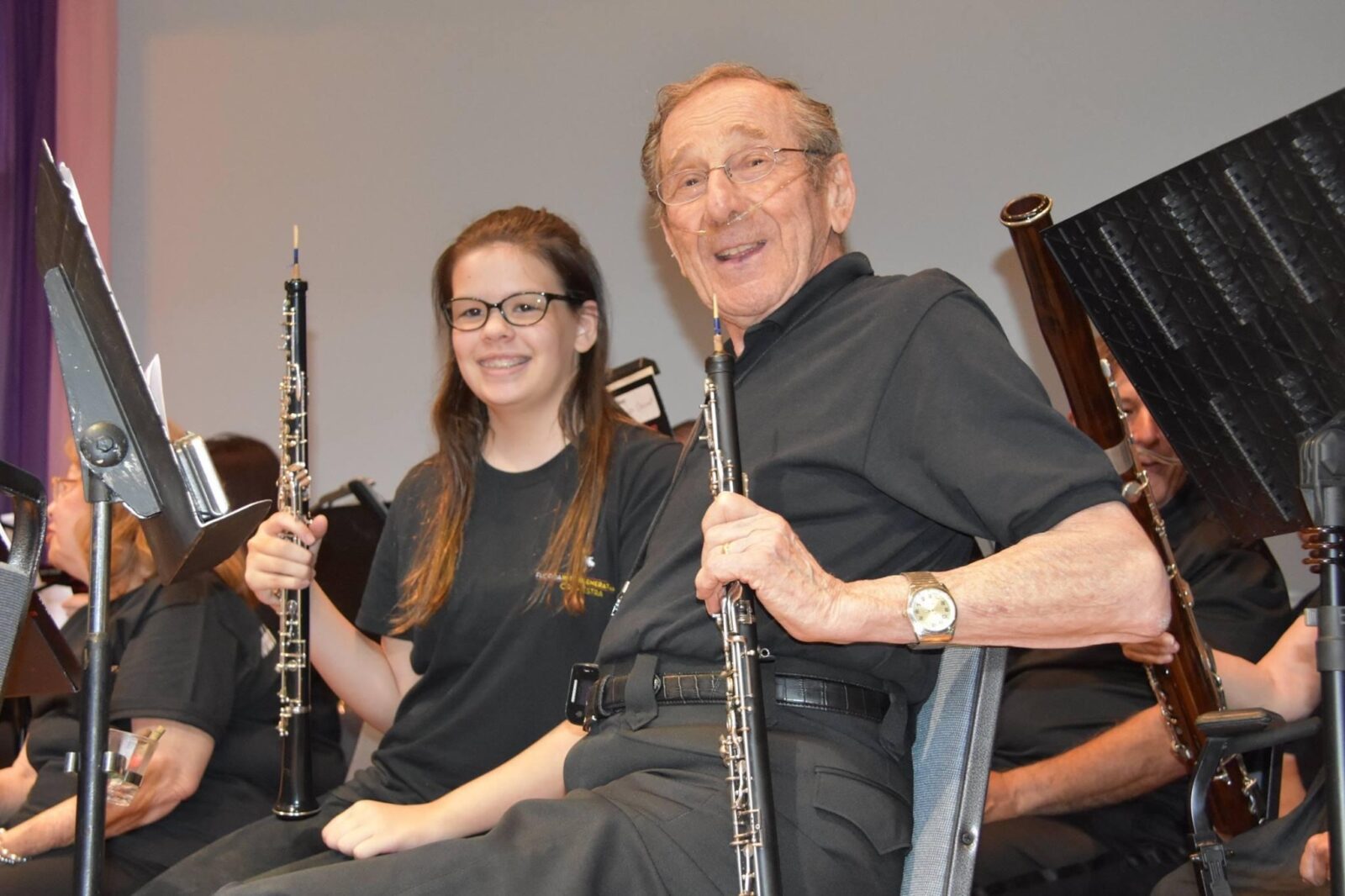
More Articles
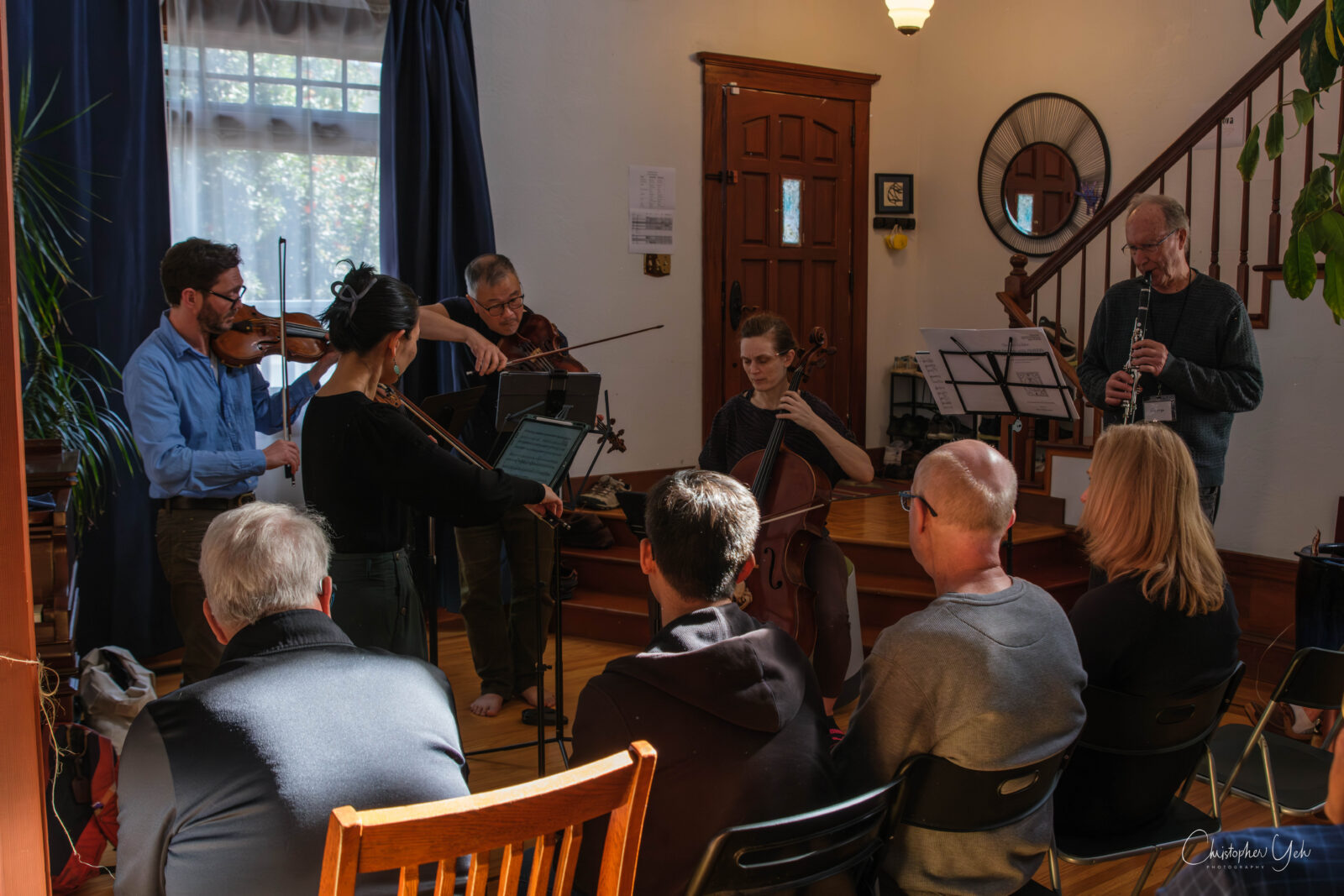
Sound and Sustenance: A Report from the Del Sol Adult Chamberfest
On a sunny weekend last month in San Francisco, 30 amateur chamber musicians from around the country gathered in the home of two members of the Del Sol String Quartet for the quartet's annual Adult Chamberfest. Neighbors would have heard strains of Britten, Janáček, Shaw, Golijov, Bunch, Beethoven and Brahms.Read More ↗
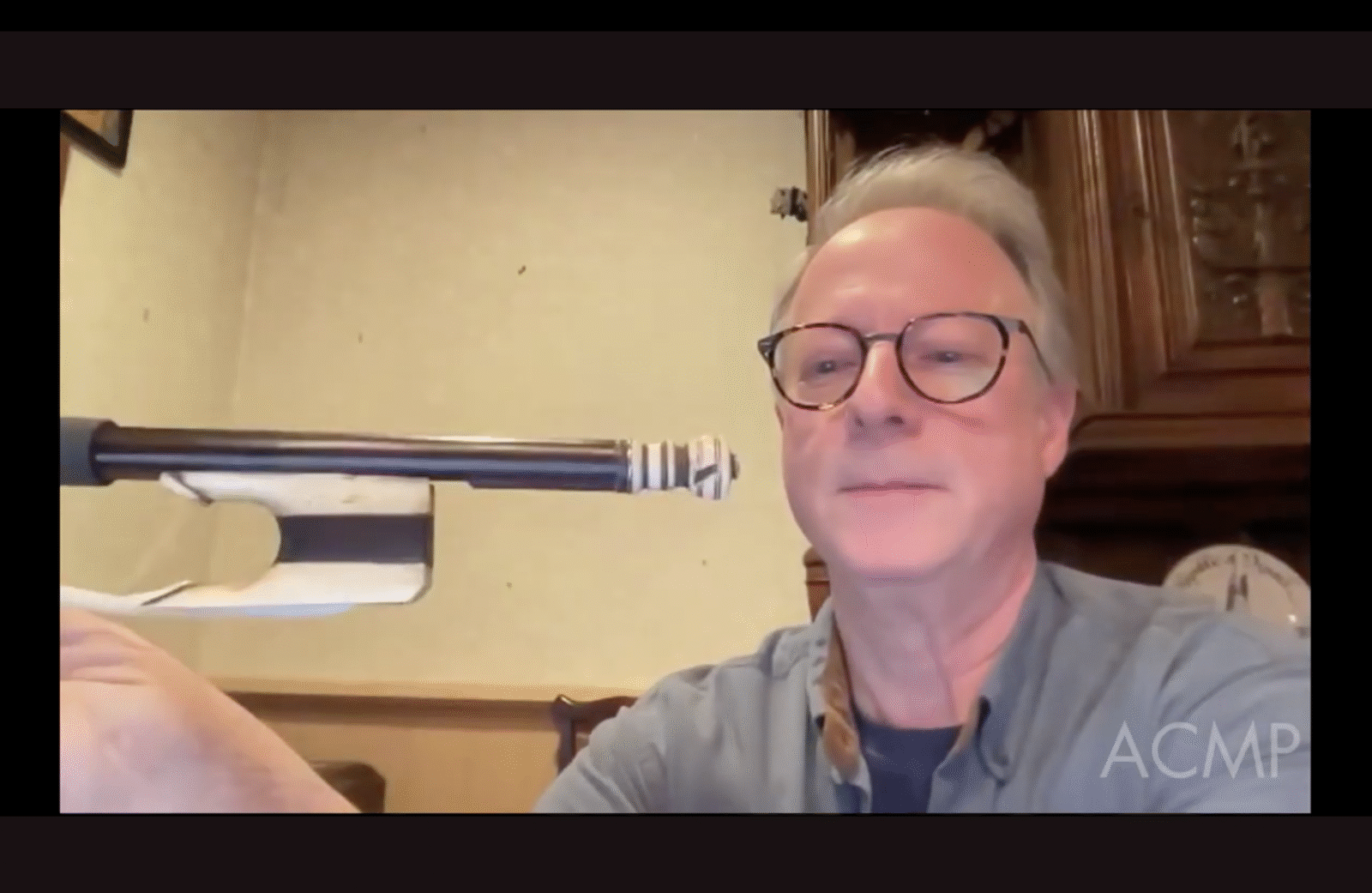
New ACMP video: “Everything you always wanted to know about bows but were afraid to ask” with Gabriel Schaff
ACMP just released the video from Gabriel Schaff's recent online talk, "Everything you always wanted to know about bows but were afraid to ask." After an illuminating presentation on the evolution of the modern bow, the questions kept pouring in. There's so much to learn and discover from Gabriel and your colleagues in ACMP.Read More ↗
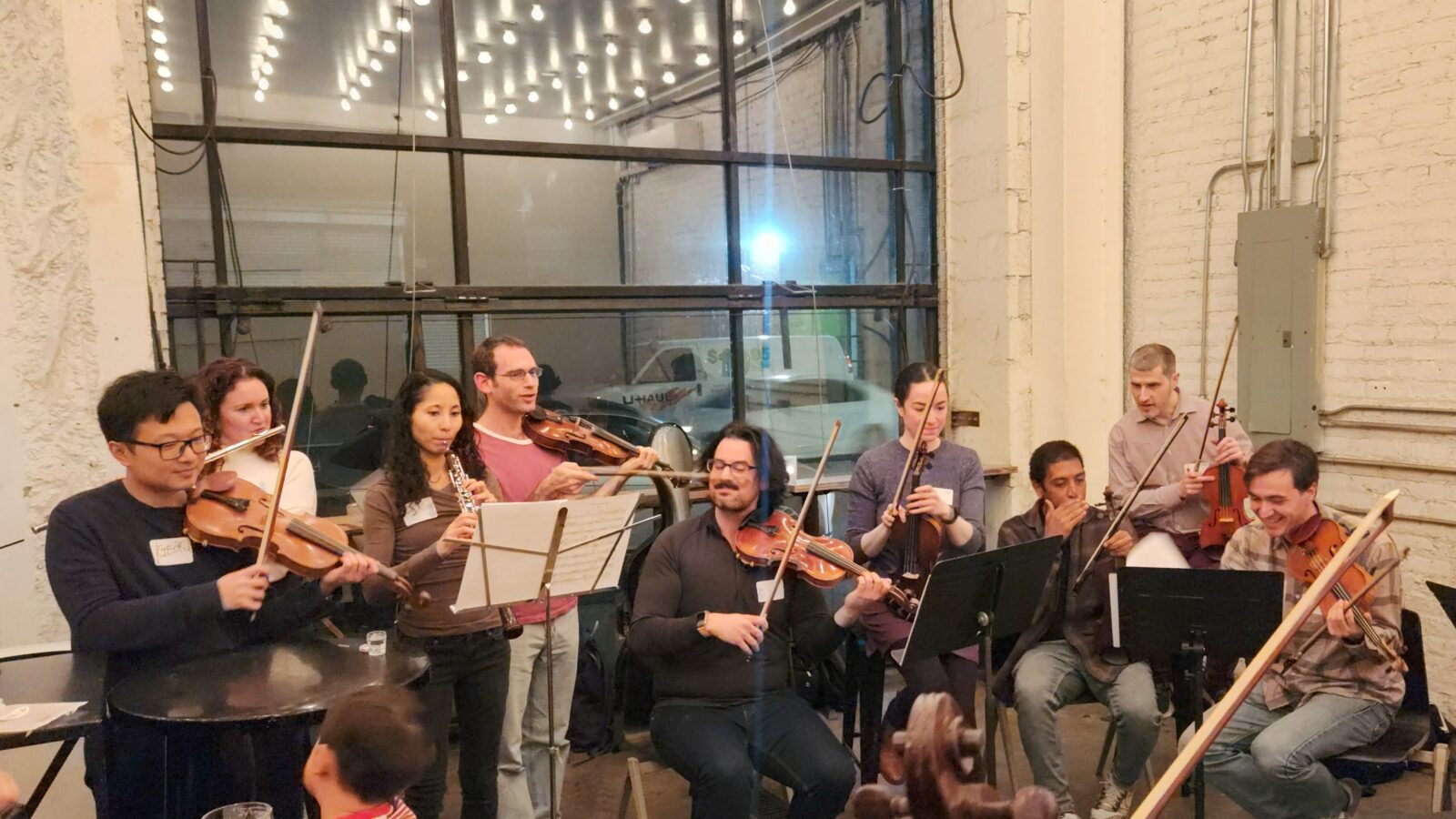
Mozart in a Brewery! Our First Young ACMP Event
Have you ever played Mozart in the middle of a brewery just for fun? That’s exactly what happened in early January when local Young ACMP members met up at Grimm Ales in Brooklyn. We co-hosted the event with ACMP member Ben Bregman, who brought music, friends new to ACMP, and a few of his young students and their parents.Read More ↗
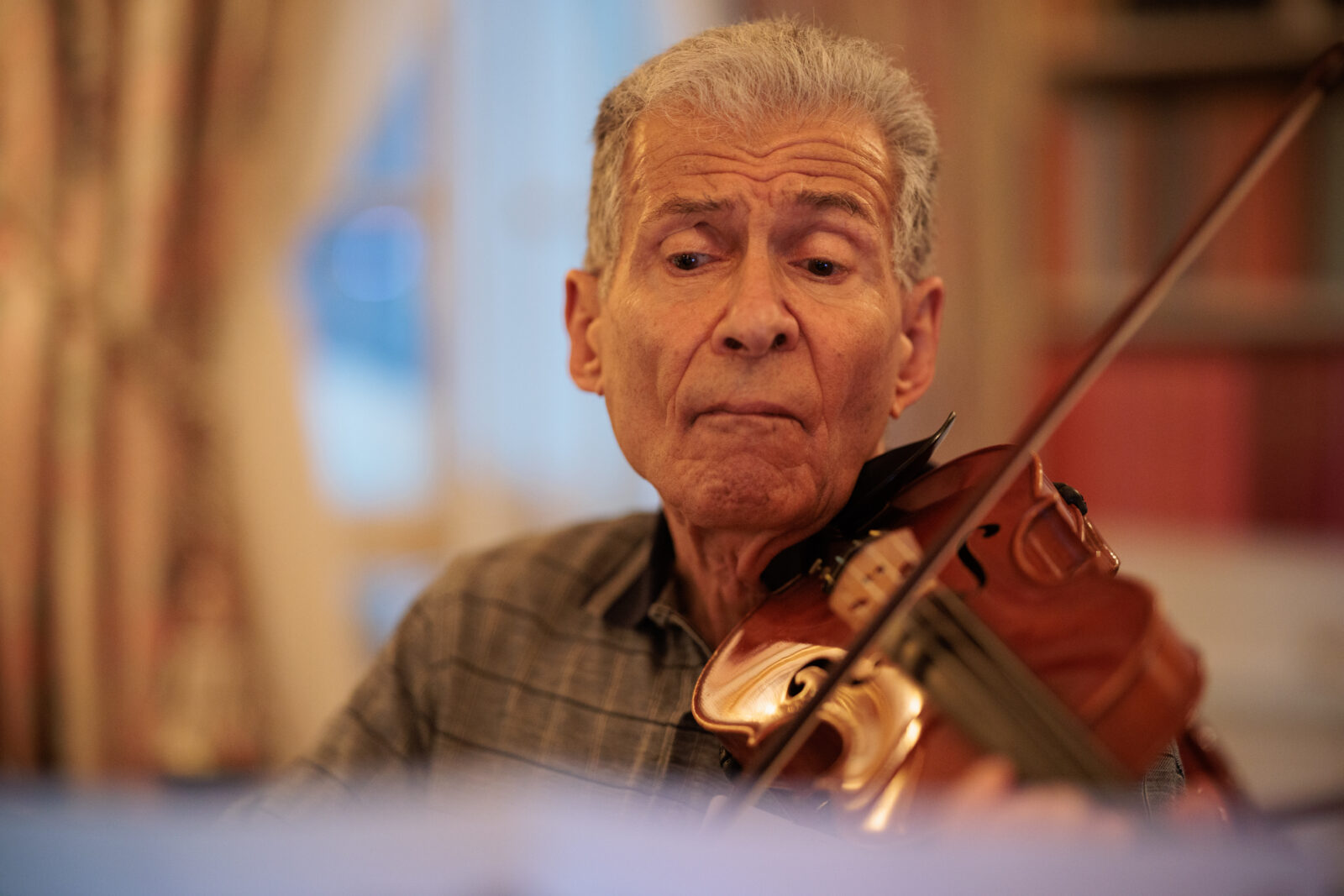
ACMP presents the 2025 Susan McIntosh Lloyd Award to the SoCal Chamber Music Workshop in memory of Ron Goldman
This past Fall ACMP gave its 2025 Susan McIntosh Lloyd Award for Excellence and Diversity in Chamber Music to the SoCal Chamber Music Workshop in honor and in memory of SoCal's founder and long-time ACMP board member Ron Goldman. Watch my interview with Julie Park and read Adam Birnbaum's touching tribute to Ron.Read More ↗
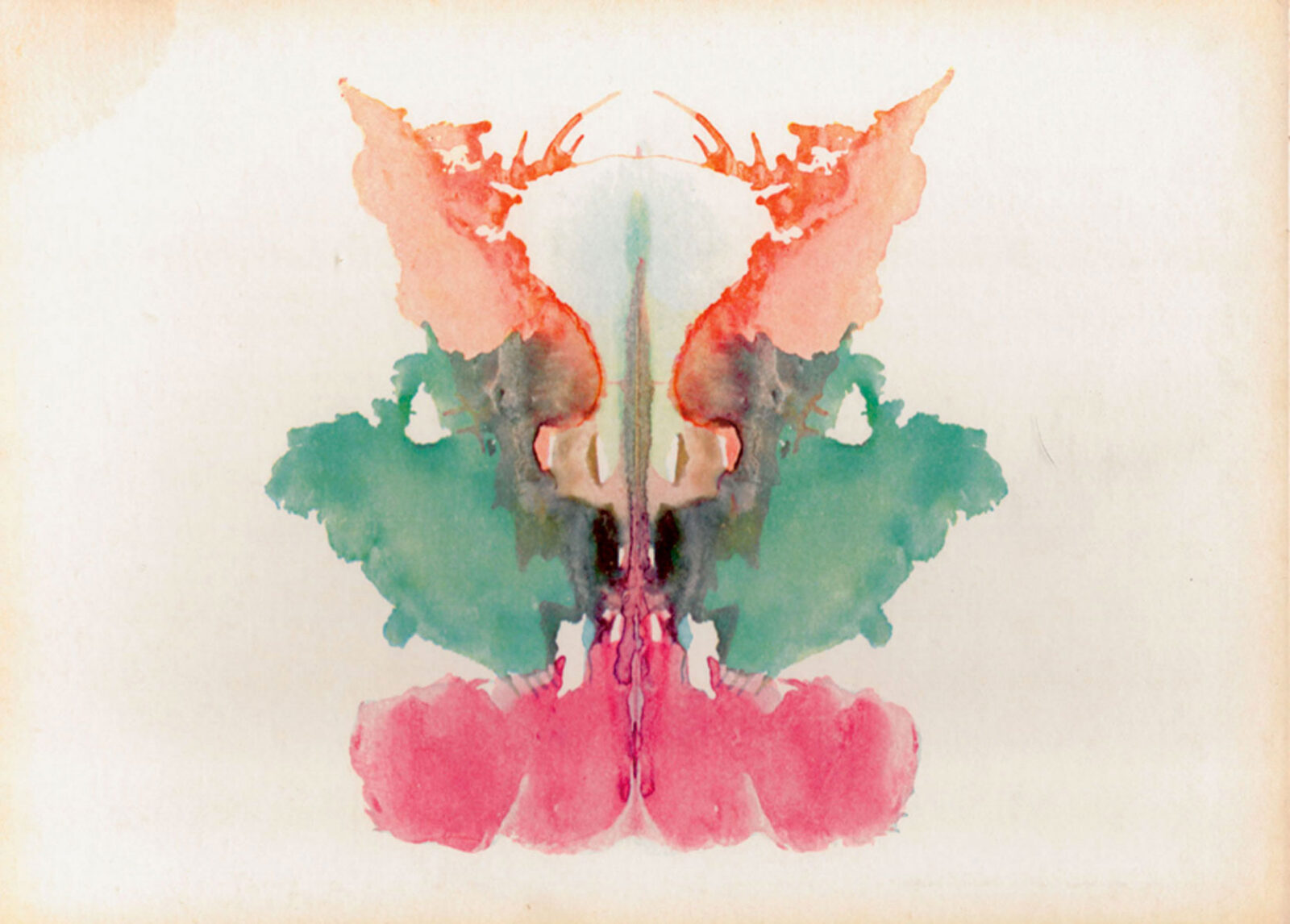
Turning ink blots into music – a discussion on the meaning and madness of notation
Join Cal Wiersma and a live string quartet for an illuminating class about decoding musical notation and translating it back into a musical line, live in Brooklyn and live-streamed on YouTube.Read More ↗
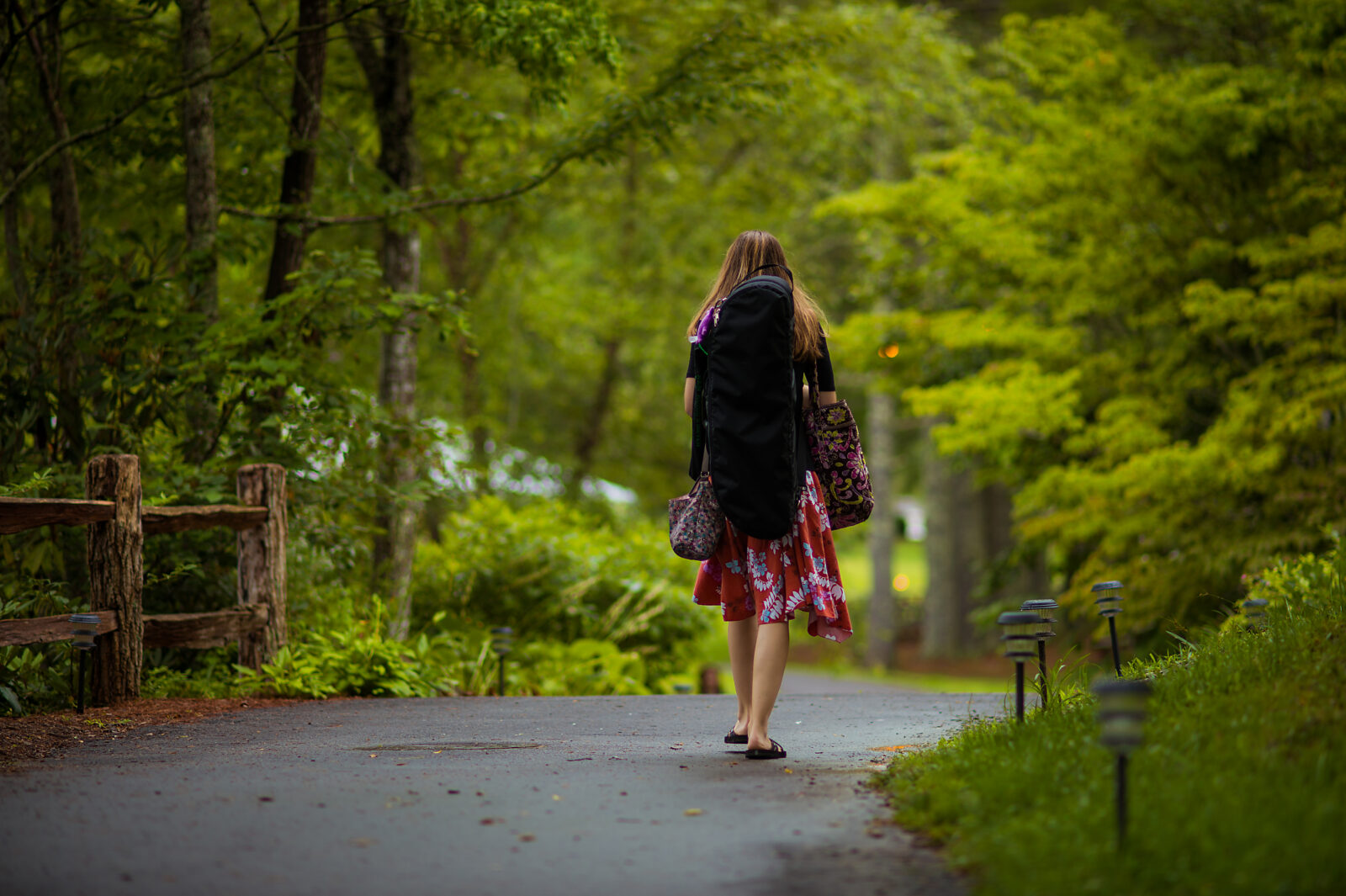
A New 5-Day Summer Home for Adult Chamber Musicians in Brevard
Brevard Music Center is launching the inaugural Adult Chamber Music Workshop, June 3-8, 2026, and we could not be more excited to welcome adult amateur musicians to our beautiful mountain campus in Western North Carolina. The program features focused rehearsal time, inspiring coaching, great colleagues at your stand, and the simple joy of spending time immersed in chamber music.Read More ↗
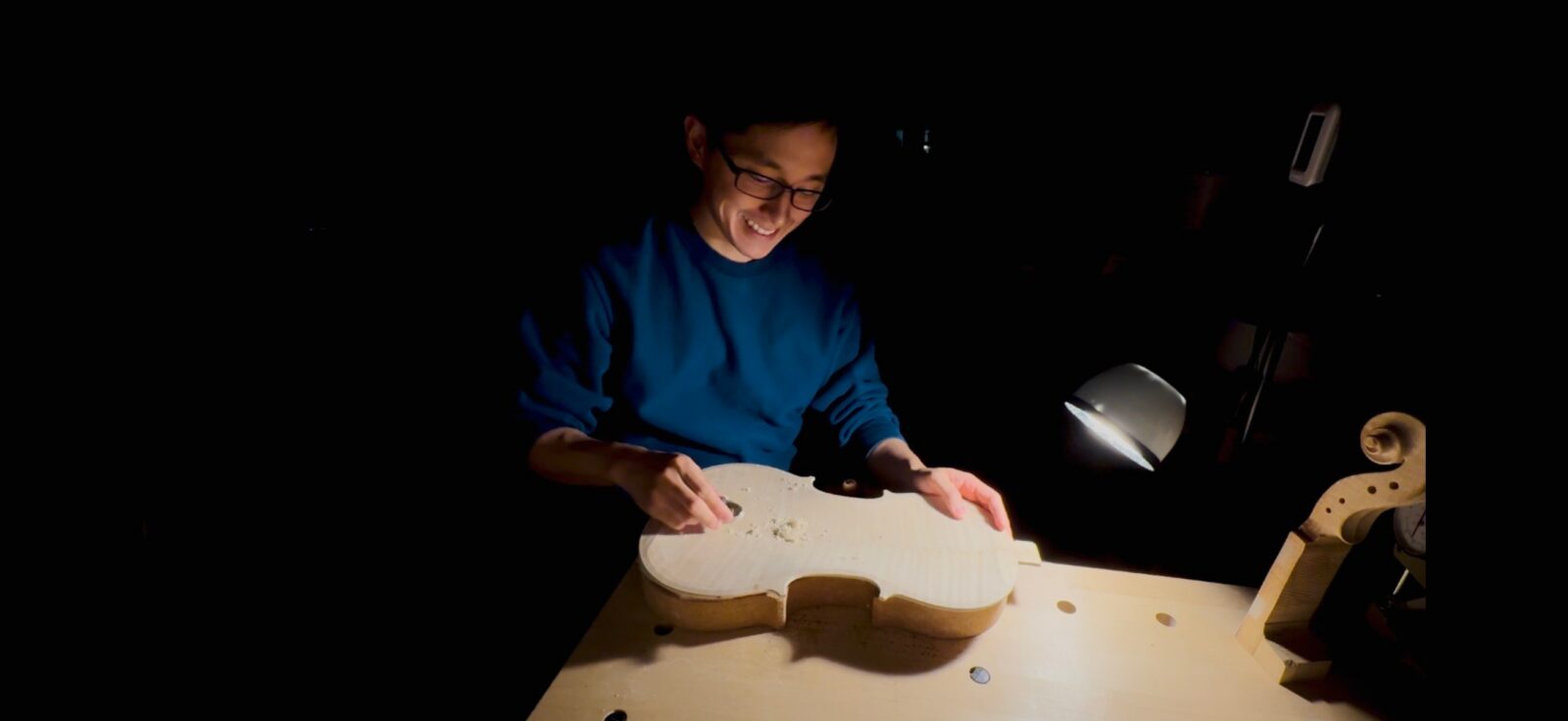
Charles Hsu – oncologist, violist, luthier
Charles Hsu has packed a lot into his 33 years. Born in the New Jersey, he grew up in Taiwan, moved back to the United States to attend MIT, and, after a stint as a management consultant, pursued his medical studies at Yale and Harvard. Today, he is Dr. Hsu, a junior attending medical oncologist at Memorial Sloan Kettering Cancer Center in New York. But through all of these pursuits, there is his love of chamber music.Read More ↗
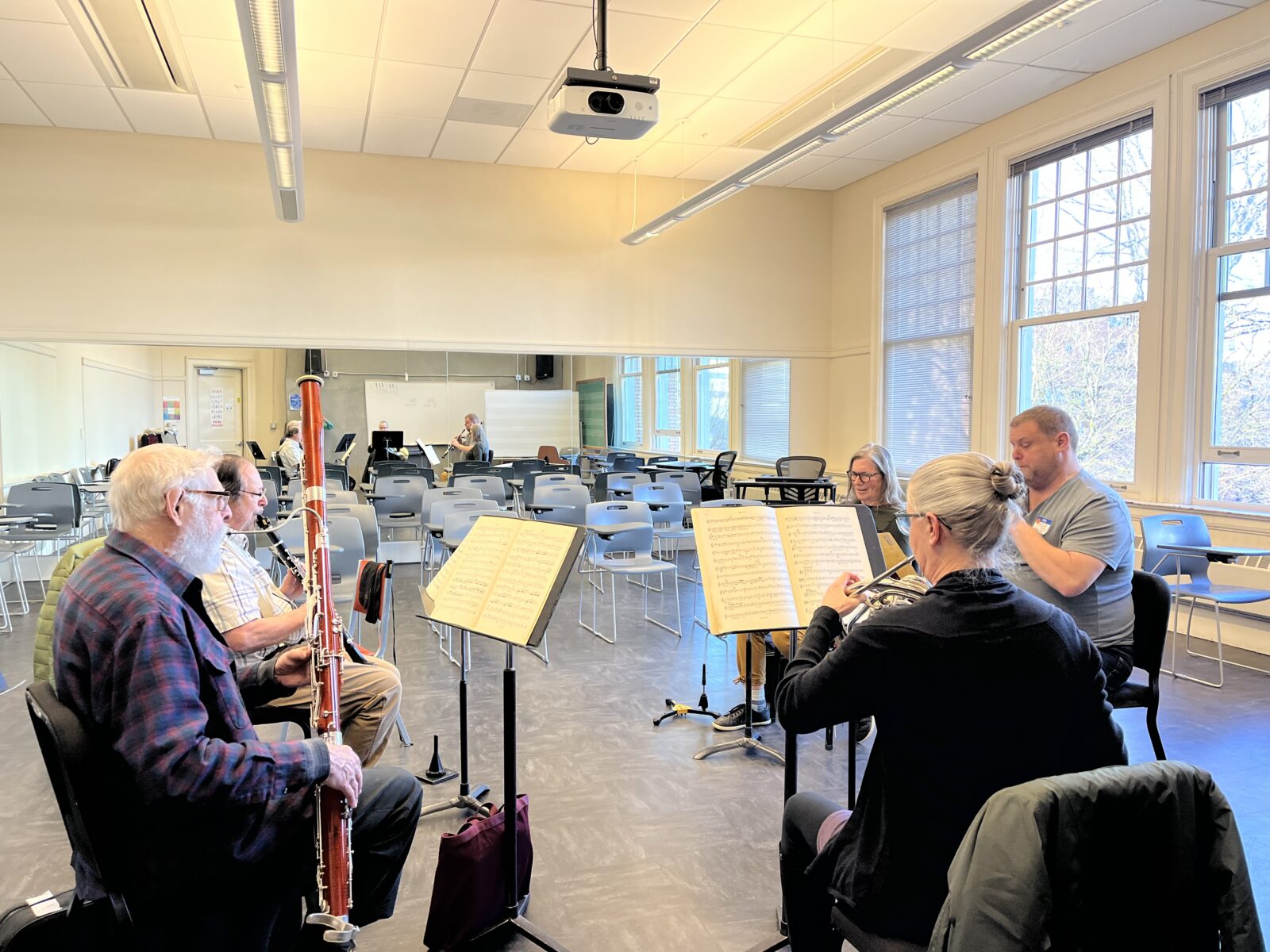
The Oregon-Washington ACMP Play-In
On January 17, 2026, 45 chamber musicians, ages 23-80, met at Portland State University's Music School Hall in Portland, Oregon for a Play-In organized by NAOC councilor Virginia Feldman.Read More ↗
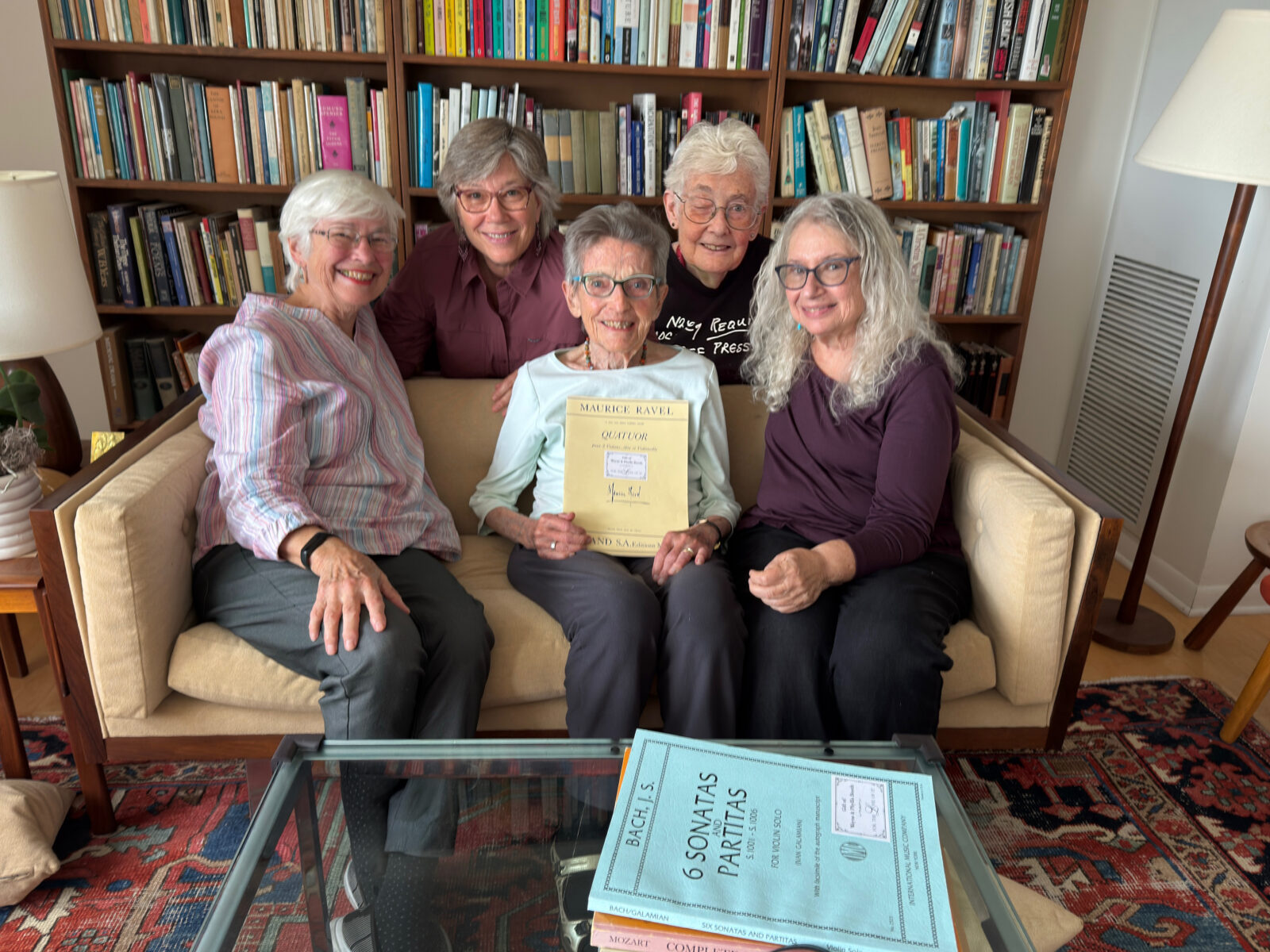
For the Love of It: A Legacy
What to do with all that music, when you finally, reluctantly, stop playing? At 99, Phyllis Booth decided to gift her collection to Golden Chamber Music at Sleepy Hollow, where she and her late husband Wayne Booth had a long, joyful connection since shortly after its founding in 1969.Read More ↗
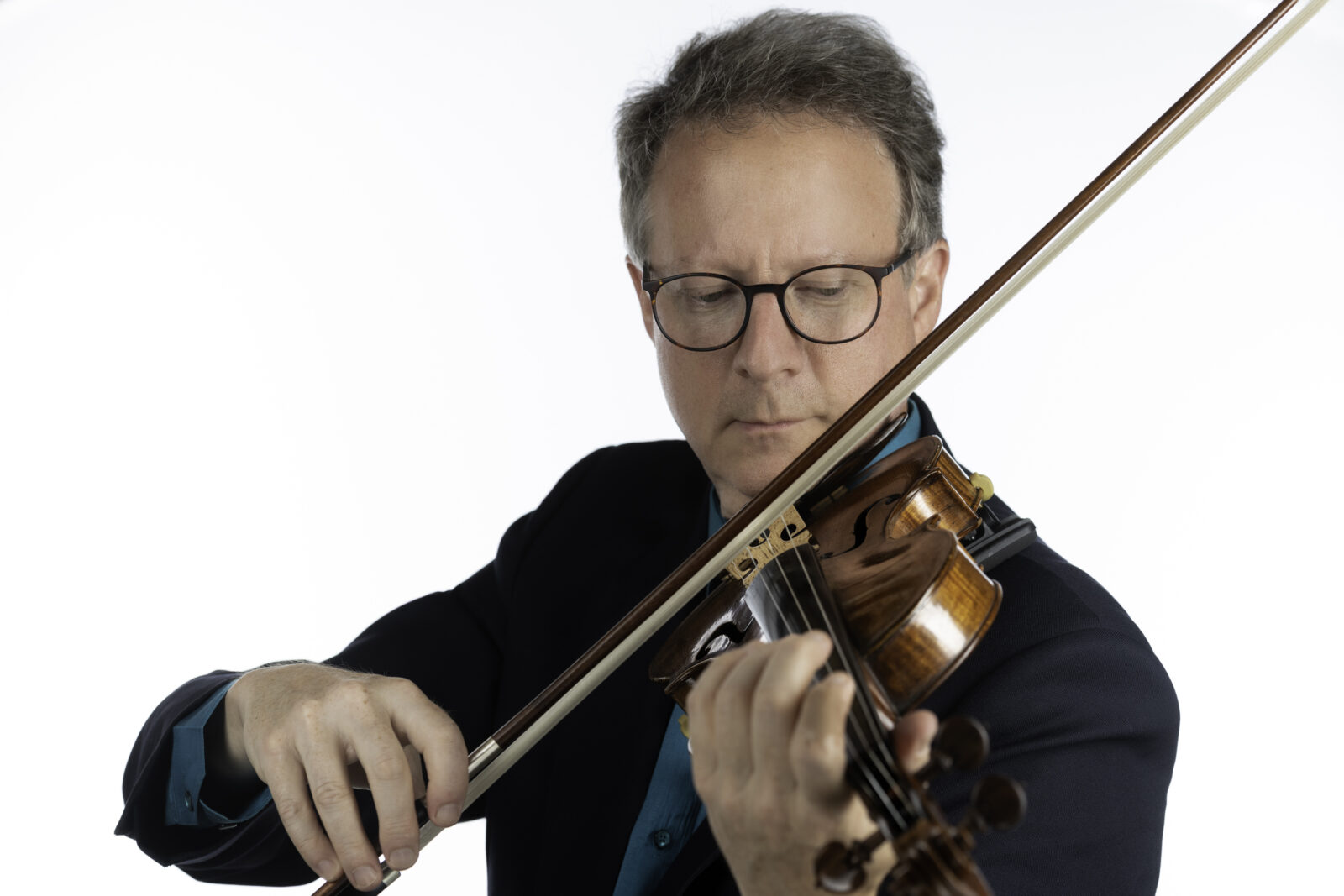
Everything you always wanted to know about bows but were afraid to ask
Join Gabriel Schaff - violinist, scholar and author of "The Essential Guide to Bows of the Violin Family" for an illuminating journey through the history of the bow to everyday tips (no pun intended) about caring for your bow, choosing a new one - and....everything you always wanted to know but were afraid to ask!Read More ↗
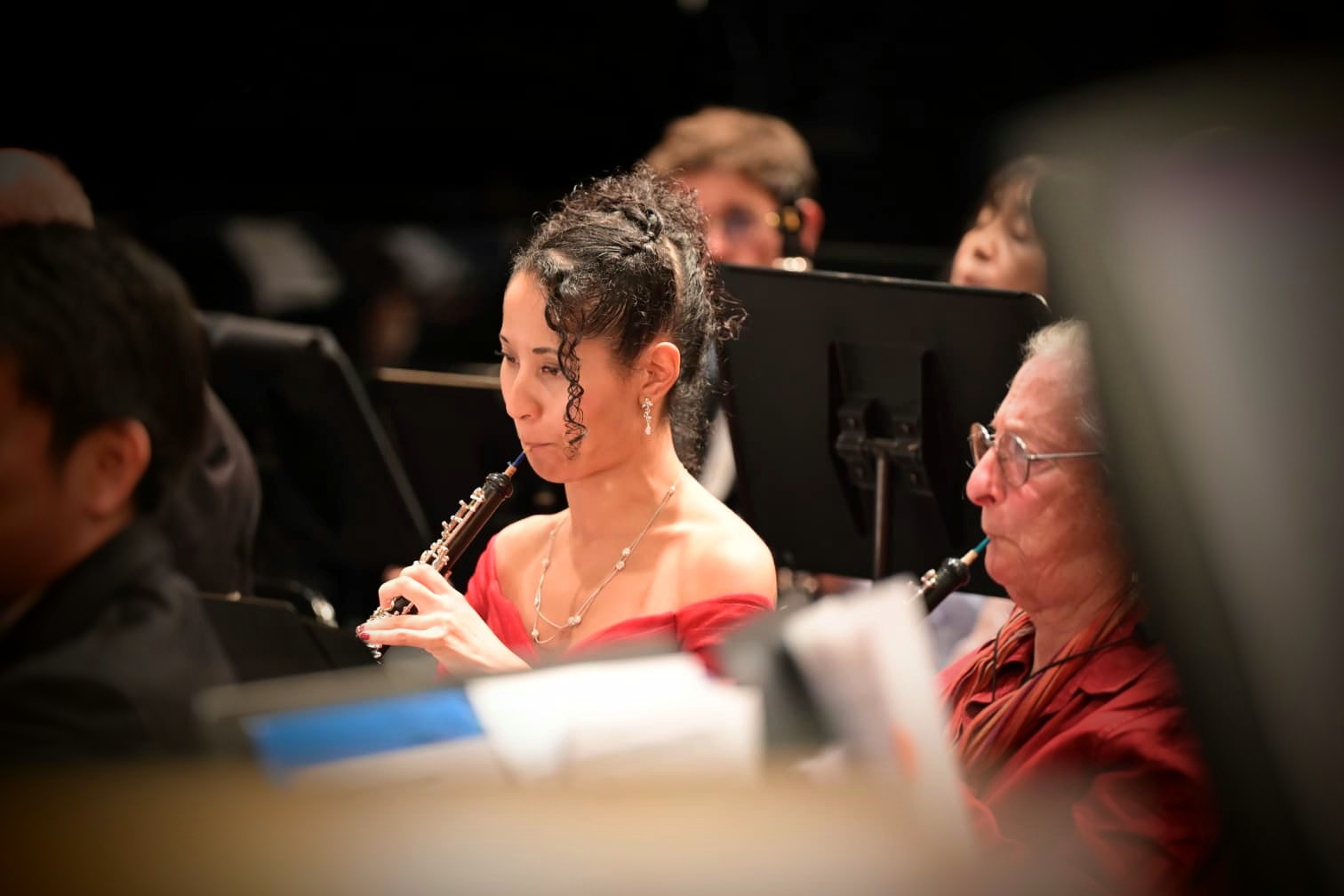
Kayana Jean-Philippe: The serious business of an amateur oboist
When it comes to the oboe, Kayana Jean-Philippe is what you might call a serious amateur – someone who pursues her passion at a high level, but does not make a living at it. One of her most consistent musical outlets has been the United Nations Symphony Orchestra, which she joined 10 years ago and is principal oboist. Another musical outlet is ACMP, which she said has connected her with new people and new musical opportunities.Read More ↗
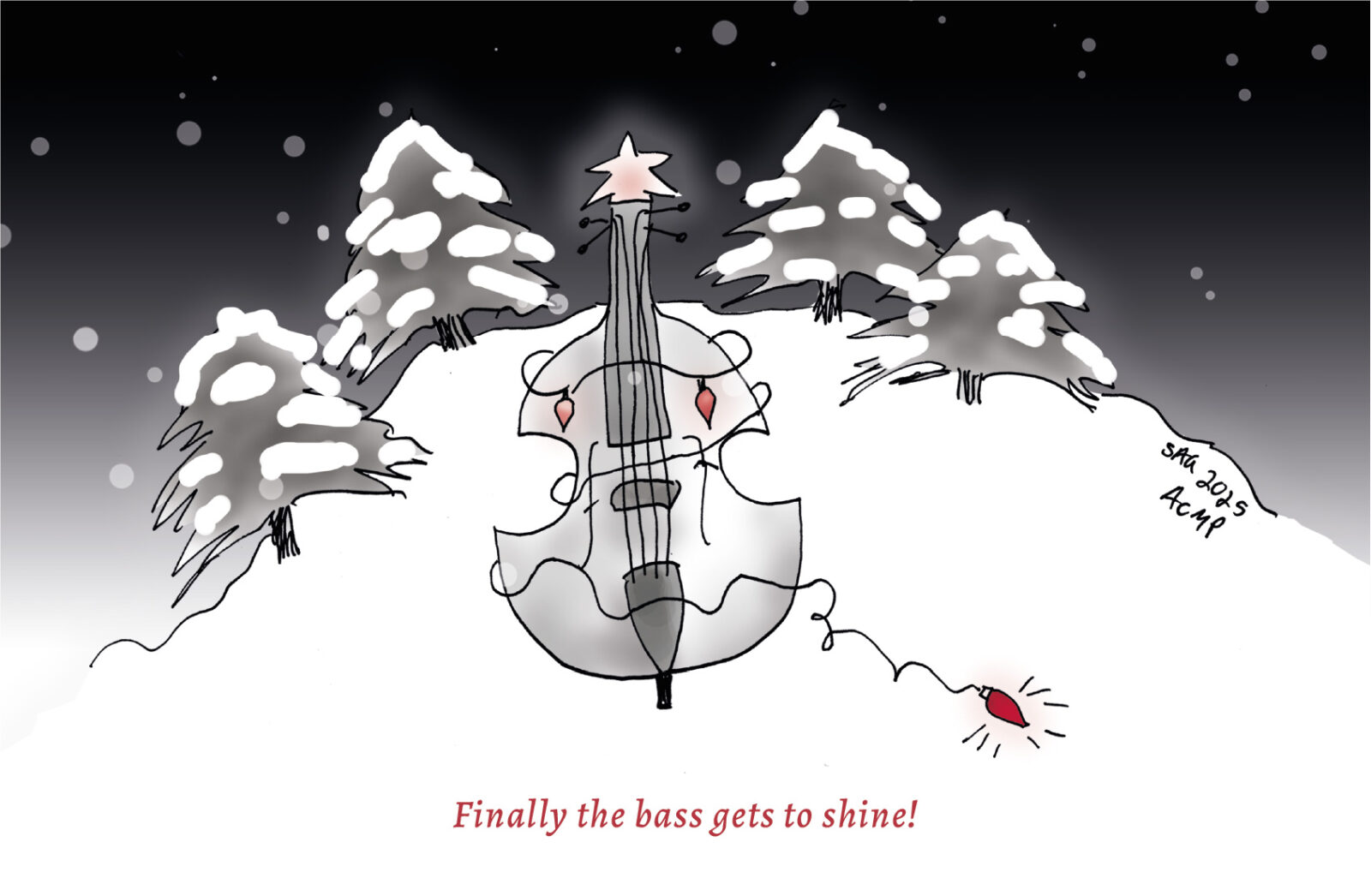
Announcing the 2025 Holiday Caption Contest Winners!
ACMP's 4th annual Holiday Caption Contest was a success, with 69 captions from 41 ACMP members. This year's winners are Valerie Matthews, Peggy Reynolds, and Matthew Greenbaum. Congratulations to everyone who came up with so many wonderful captions for this year's cartoon!Read More ↗
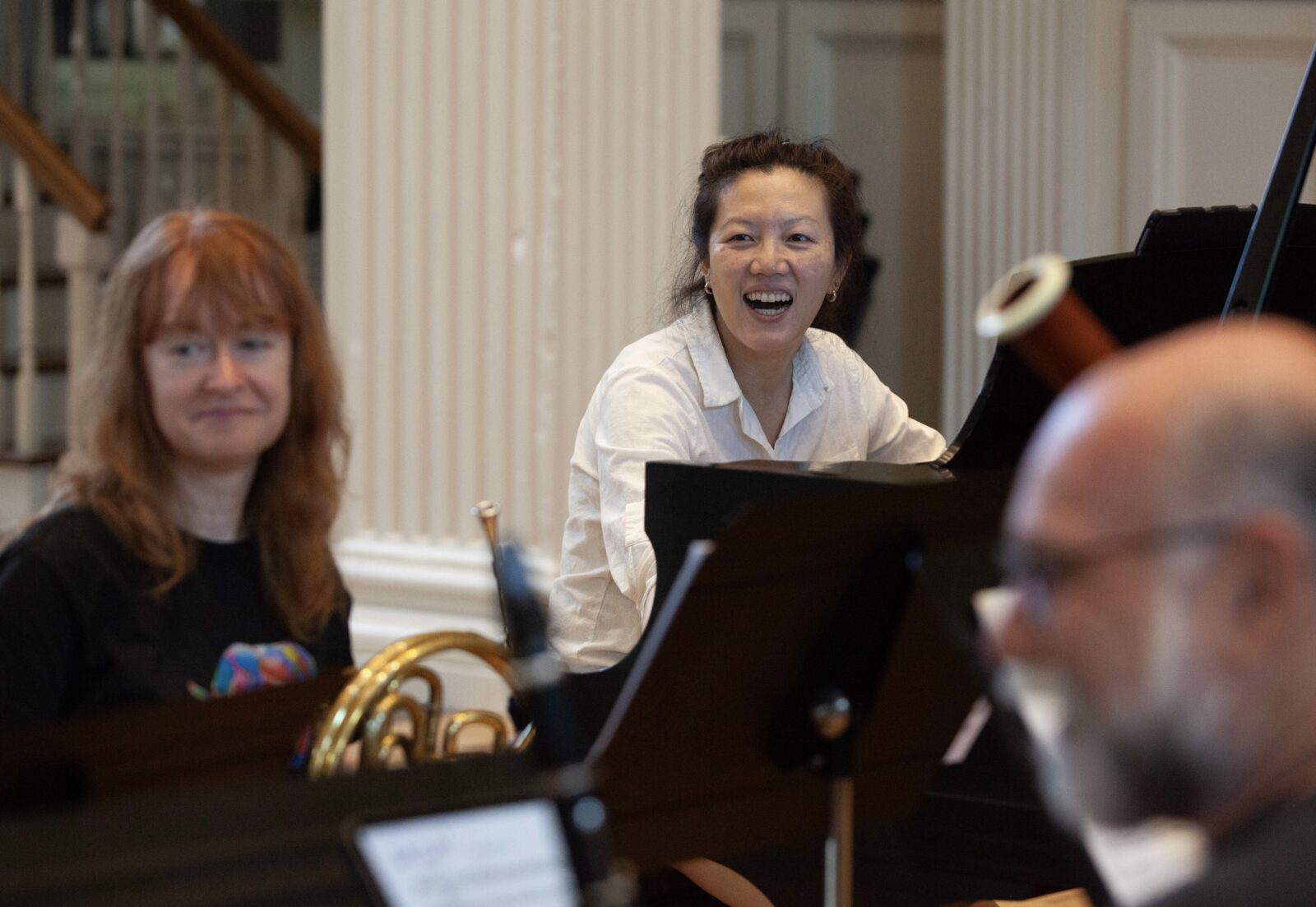
Announcing ACMP’s 2026 Workshop/Community Music Grantees
ACMP is proud to announce its 2026 Chamber Music Workshop and Community Music grantees. This year we awarded $168,000 in grants to 73 chamber music workshops and semester- or year-long programs in 10 countries, and 31 US states. (Photo by Claire Stefani.)Read More ↗

Mystery Donor Reveal: An interview with Louise K. Smith
An anonymous member of ACMP recently spearheaded a fundraising initiative for ACMP in the two week lead-up to Giving Tuesday, offering a $25 gift for each donation received from November 18, 2025 through Giving Tuesday (December 2.) This mystery donor just revealed her identity: Thank you, Louise K. Smith! I asked Louise some questions about her background as a pianist, involvement with ACMP over the years, and about her recent matching grant idea.Read More ↗
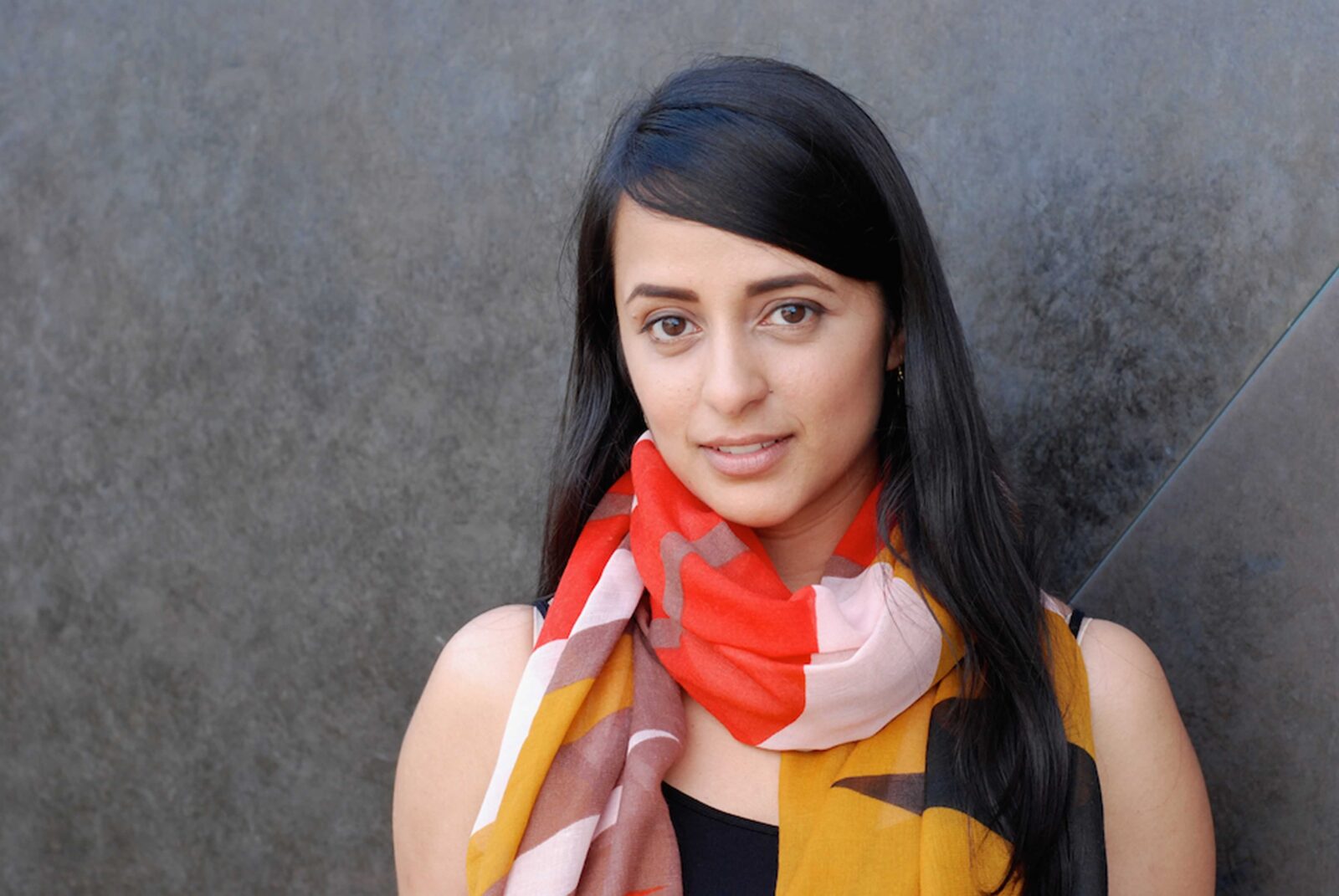
A Bridge from West to East – The Chamber Music of Reena Esmail
After a recent visit to her father's hometown in India, ACMP member pianist Sonya Subbayya Sutton returned to the United States with a renewed curiosity about her Indian culture and music. This led her to explore the music of Indian American composer Reena Esmail. Read about Reena's own voyage of discovery in Indian music and check out links to her scores and recordings.Read More ↗
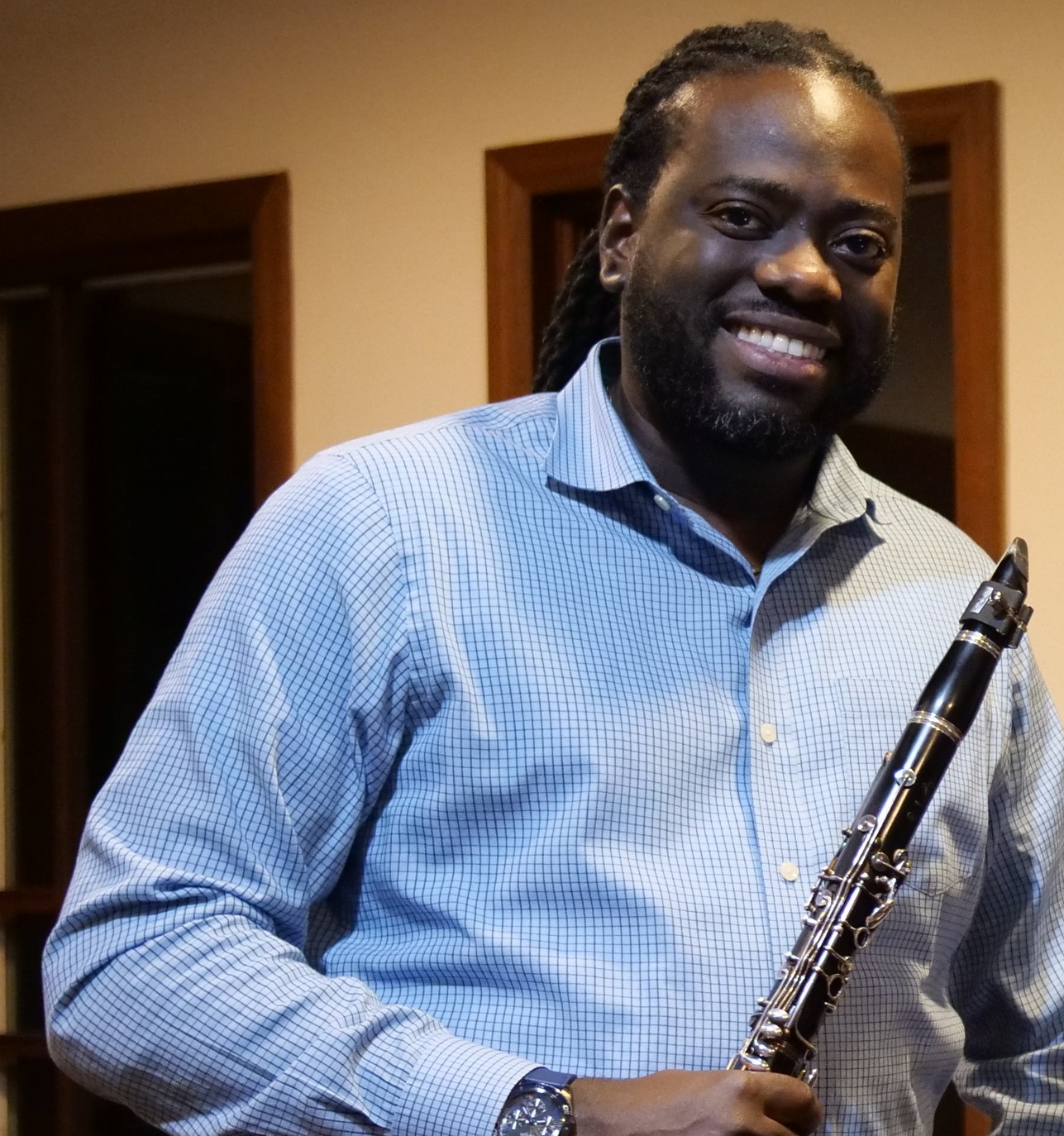
ACMP Member of the Month: Kwame Lewis
Kwame Lewis is not your typical accountant. Born and raised in Trinidad, he emigrated to the United States in 2003 at the age of 23 and set about building his career. Along the way, he lived in the Washington area for an extended period, got married, had two boys who are now 5 and 3 years old, and since 2019 has lived with his family in Melrose, Mass., near Boston. One constant through his journey, though, has been his love of the clarinet and chamber music.Read More ↗
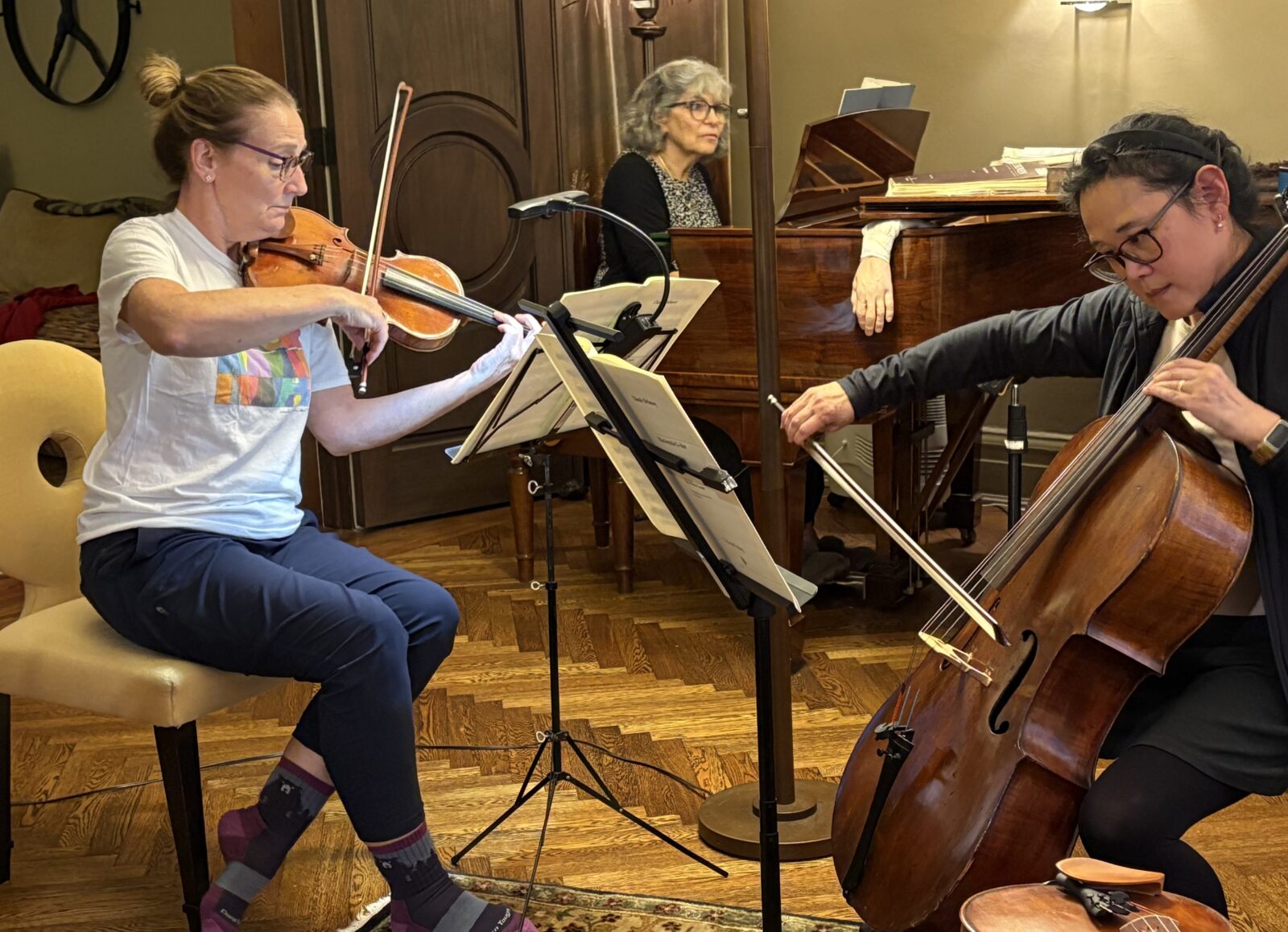
Chamber music for a cause: amateur musicians support Music for Food
ACMP member pianist and violist Arlene Hajinlian is as active a chamber music organizer as she is in sharing her time and space for social causes. This Thanksgiving holiday weekend she came up with a way for adult amateur chamber musicians to have a lot of fun while raising money to support New Yorkers in need: three consecutive chamber music parties as a benefit for Broadway Community through Music for Food.Read More ↗
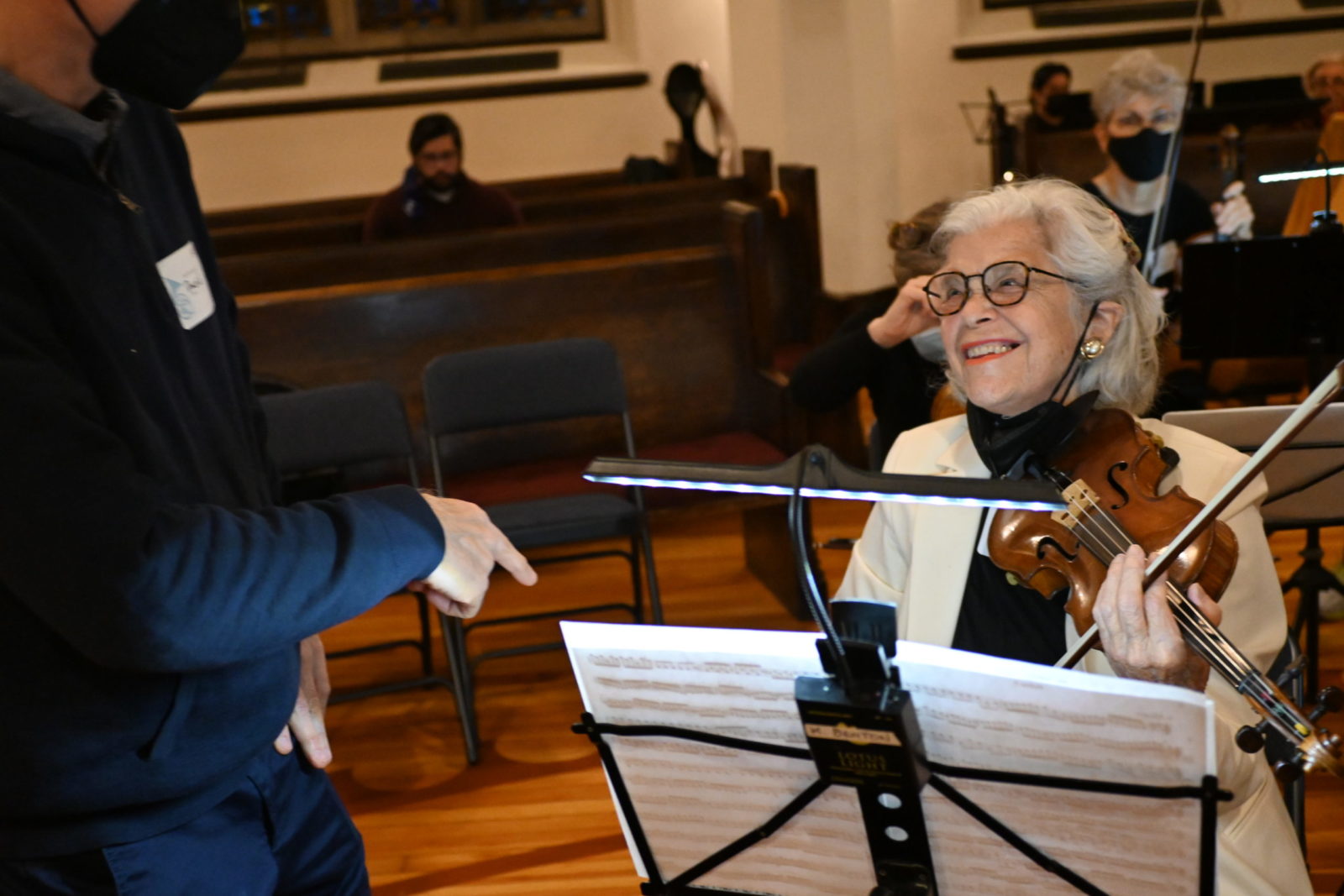
Remembering Kate “Kitty” Bigelow Benton (March 29, 1935 – November 2, 2025)
ACMP mourns the loss of Kitty Benton (1935-2025), a former board member, board secretary and longtime editor of the ACMP newsletter. Read about Kitty's life and watch a video of Kitty telling her favorite stories about ACMP in June 2021.Read More ↗
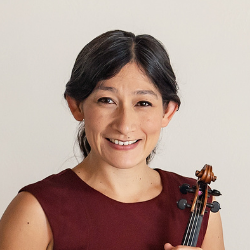
New Video – Meet The Artist: Harumi Rhodes
ACMP Executive Director Stephanie Griffin hosts a lively Zoom conversation with violinist Harumi Rhodes about her musical upbringing and career with the world-renowned Takács Quartet.Read More ↗
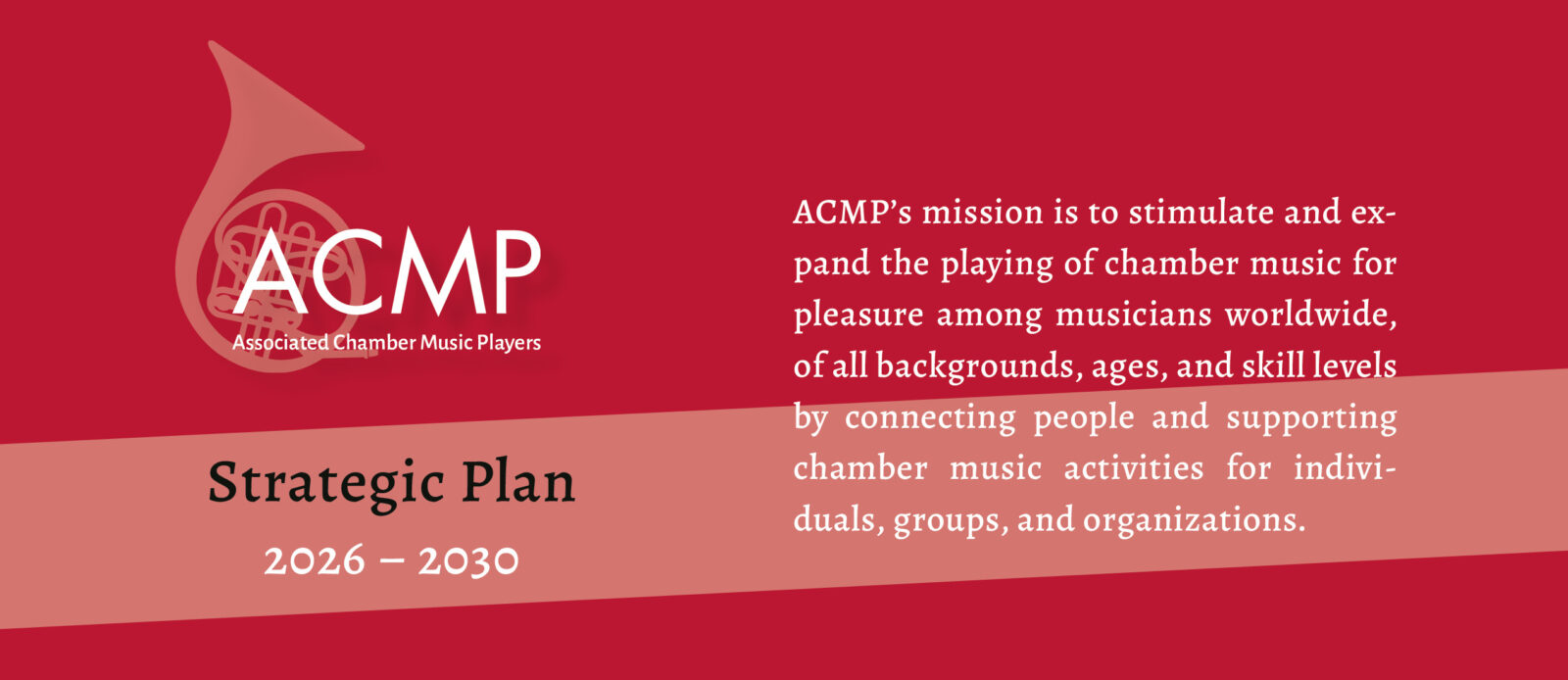
ACMP Strategic Plan for 2030
For the past several years, ACMP’s membership has grown dramatically, as has the popularity of its programs. Building on this momentum, ACMP’s Board and Executive Director completed a strategic plan to chart a course for the organization for the next five years. ACMP’s Board and Executive Director developed a new vision for the organization and a plan to strengthen member services, grants, operations, and finances to advance ACMP’s mission by 2030 and beyond.Read More ↗